Can Artificial Intelligence Help the Hotel Industry?
By Alexandra Pacurar No, this is not an article about how you should replace staff with robots, cut costs and get ready for more prosperous times. This is an article about how artificial intelligence and technology can take your hospitality business to the next level, as a useful addition to your skilled, professional employees. AI…
By Alexandra Pacurar
 No, this is not an article about how you should replace staff with robots, cut costs and get ready for more prosperous times. This is an article about how artificial intelligence and technology can take your hospitality business to the next level, as a useful addition to your skilled, professional employees. AI is present in accommodation establishments around the world, and while some hotels have limited its use to mobile software, others have experimented with robots.
No, this is not an article about how you should replace staff with robots, cut costs and get ready for more prosperous times. This is an article about how artificial intelligence and technology can take your hospitality business to the next level, as a useful addition to your skilled, professional employees. AI is present in accommodation establishments around the world, and while some hotels have limited its use to mobile software, others have experimented with robots.
The Henn-na Hotel in Japan became widely known when it announced it “hired” several robots, including two for its front desk. The first is a “lady” called Yumeko, a humanoid robot with long, dark hair, and the second is an English-speaking velociraptor dinosaur, complete with bellboy hat and bow tie. Both can greet and check-in guests. The same hotel has robots as cleaners and integrated AI systems that allow visitors to open doors by using a facial recognition software or control the lights through verbal cues.
While humanoid robots, like Yumeko, are more typical for Asia, in Europe or across the pond, in the United States, hotel robots look more like something we have seen in cartoons or movies. For example, last spring, Hilton announced their collaboration with IBM, which resulted in Connie—a Watson-enabled robot concierge for the hospitality industry. Watson is IBM’s cognitive system enabling a new partnership between people and computers, as the company itself defines it. Connie is “working” in Hilton McLean in Virginia, and she counts informing guests on local tourist attractions and hotel features and amenities or making dining recommendations among her main responsibilities. The purpose is to assist visitors, and personalize and improve their experiences.
Travelers can encounter Connie’s less friendly looking sibling, from Savioke, in Aloft hotels. Simply called Botlr, this robot is an expert in room service—delivering guests their towels, beverages or forgotten items. Botlr makes life easier for the hotel’s staff that is spared from running from one guest to another and can focus on visitors trying to check-in or check-out.
In Belgium, Mario is the star. The red-and-white robot at Marriot Hotel in Ghent is a product of Belgian company QBMT and is considered a celebrity among locals. Mario speaks 19 languages and is in charge with checking the rooms or welcoming visitors. Currently, more than 100 Zora robots (like Mario) are already “working” in the healthcare sector in France, The Netherlands, Switzerland and Belgium.
Another artificial intelligence system that made headlines is Ivy from Go Moment. The IBM Watson-driven system can handle about 90 percent of the requests coming from guests. It seems that Ivy focuses on deciphering visitors’ questions and helping them with their needs. As you check-in, you leave your phone number to enter the program. Interaction begins the moment you enter your room—you receive a welcoming message asking you to rate the experience/room so far. Based on your answer, Ivy will make your stay a more pleasant one. If you have any complaints (for example, you want a room with a better view), Ivy will immediately alert the staff that can help you with your request. It will save you the time-consuming and often stressful effort of finding available staff to help you with your request. For information such as the Wi-Fi password or dinner reservations, Ivy provides instant responses via SMS. Ivy is operational in many hotels, including the Hilton chain. Results so far show that this type of assistance services leads to more satisfied customers and less bad reviews.
From dinosaurs to cute, red-and-white robots, artificial intelligence in hotels has taken many forms, but one way or another, it can positively impact the business by making the work of human staff more efficient rather than replacing it.
Images courtesy of Marriott and Henn-na Hotel

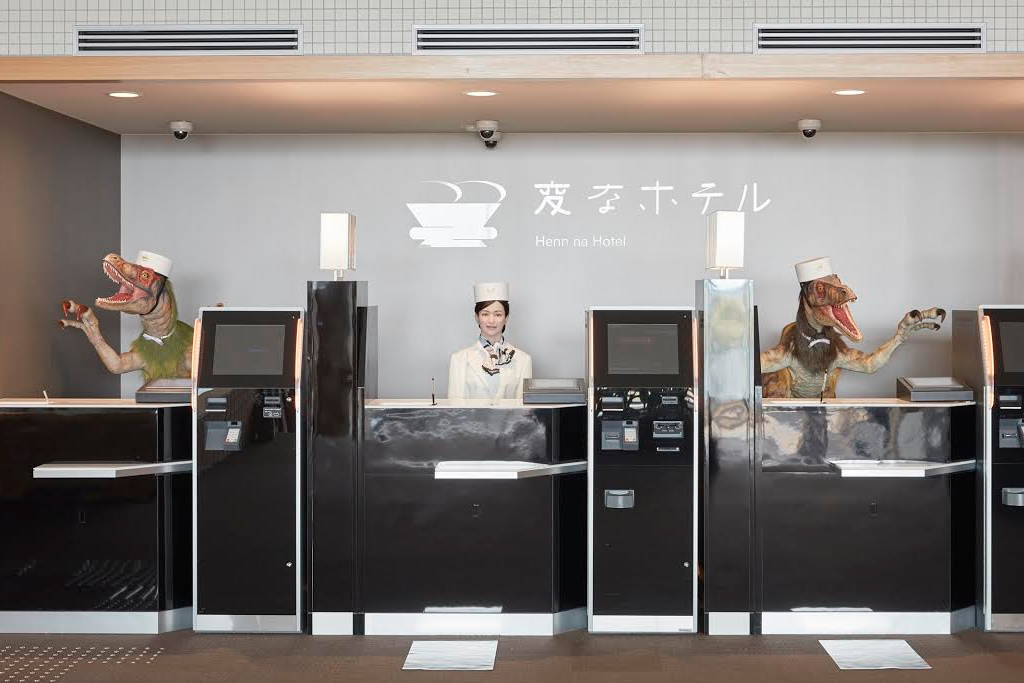
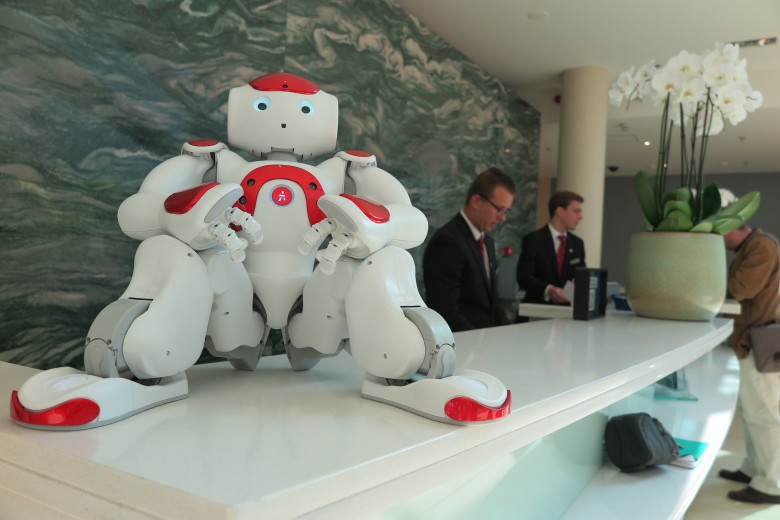

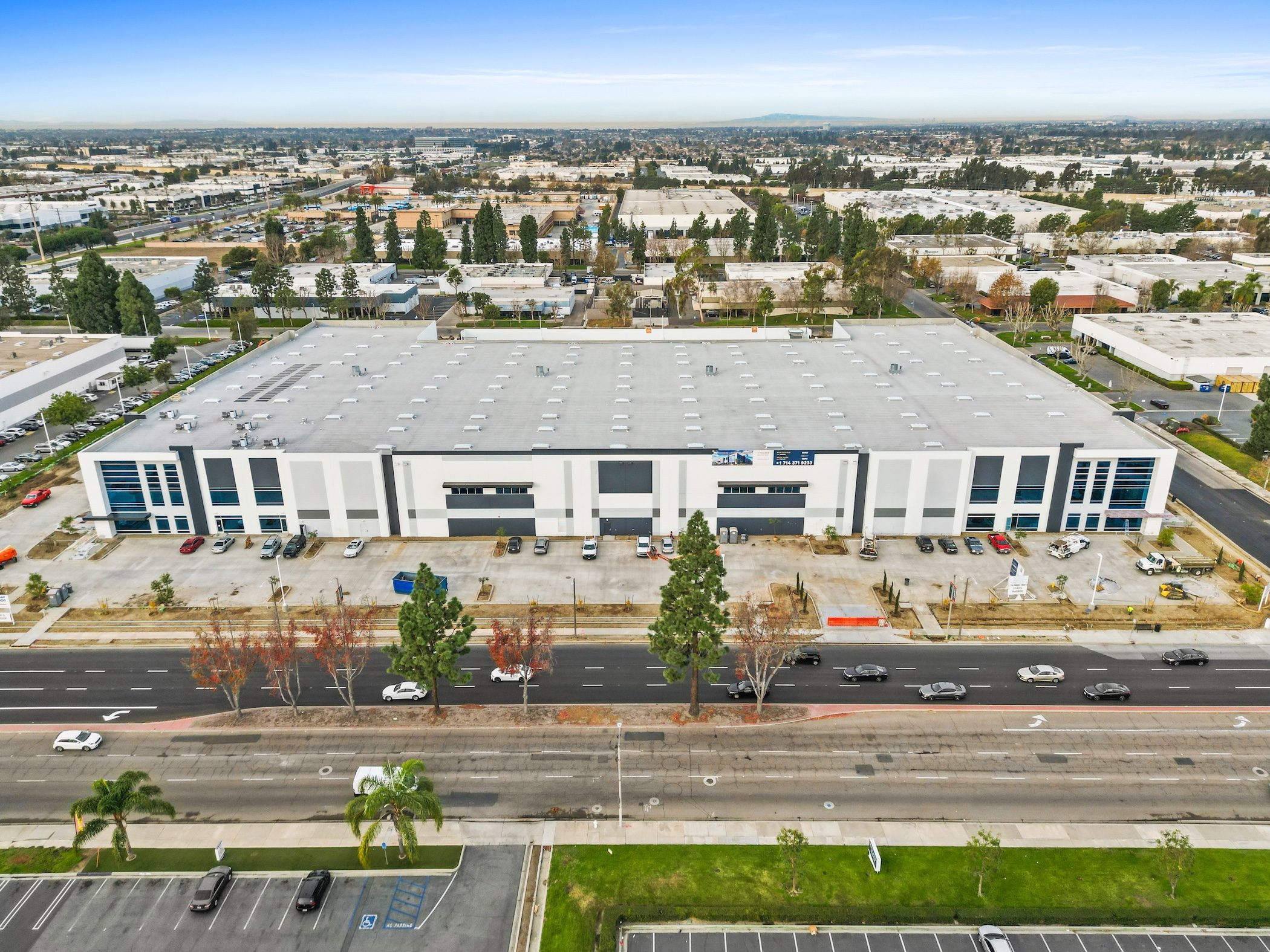
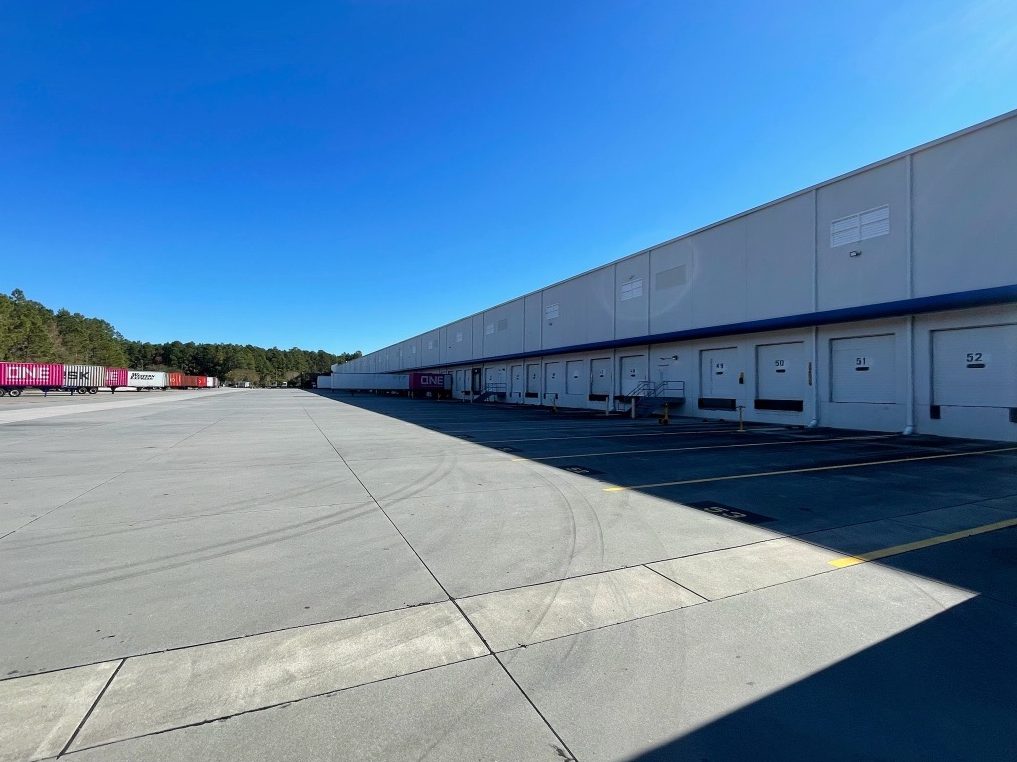
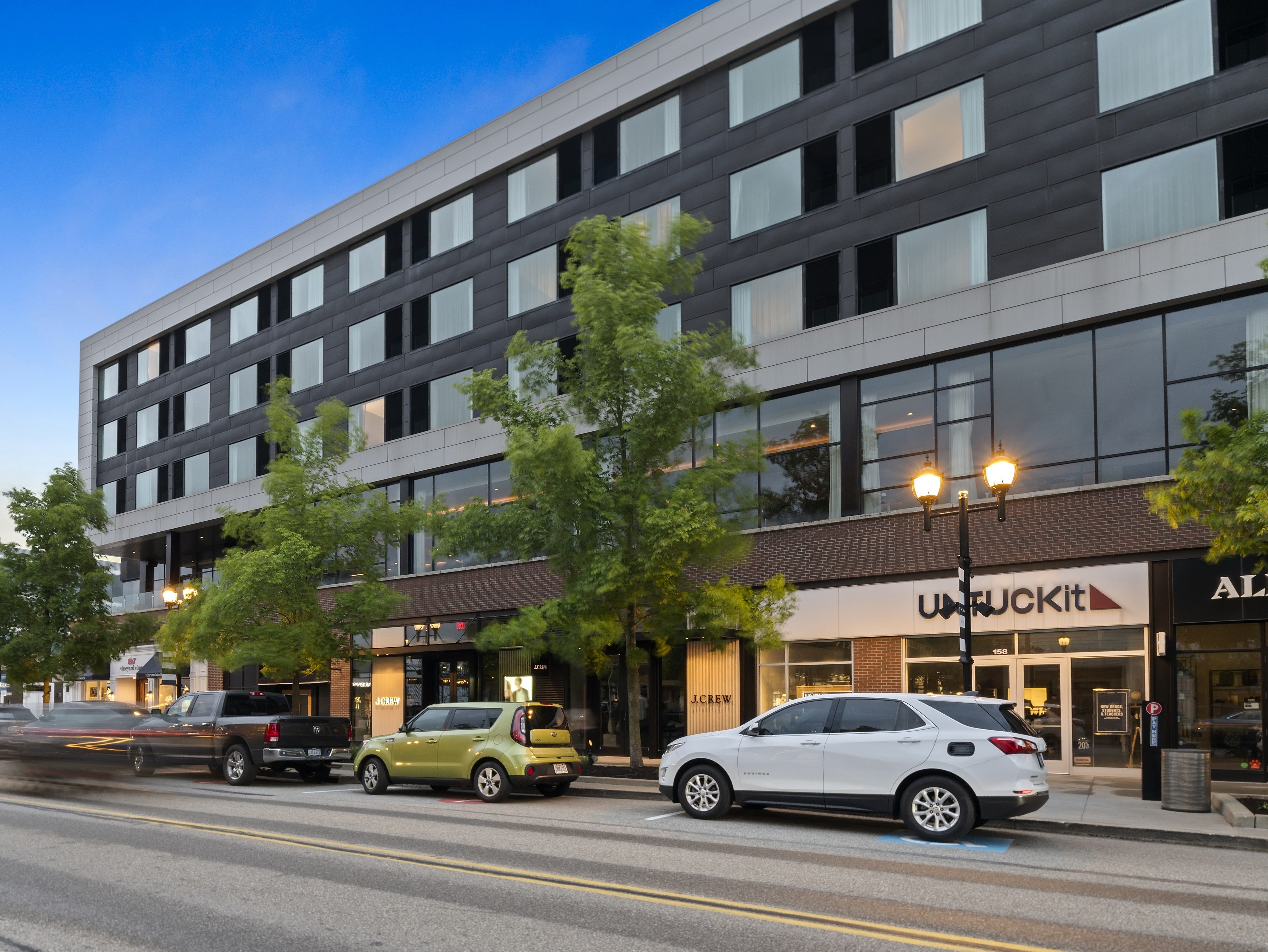


You must be logged in to post a comment.